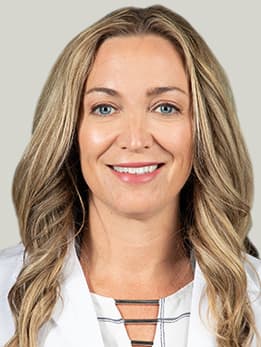Childhood Cancer Survivors Center
In the not too distant past, children who were diagnosed with cancer had a slim chance of surviving the disease. Now, more than 70 percent of patients survive childhood cancers. Unfortunately, these survivors may have complex and long-term health issues due to their treatment plans.
In order to address the very specific needs of these patients, we created the University of Chicago Medicine Childhood Cancer Survivors Center. This is an integrated program for pediatric and adult survivors of childhood cancer aimed at the prevention and treatment of long-term issues associated with cancer therapy.
Our Cancer Survivor Center Services
Some of the health problems cancer survivors may have include:
- Heart problems, including early congestive heart failure, coronary heart disease and heart attacks
- Endocrine disorders, including thyroid dysfunction, obesity, growth delay, premature menopause and osteoporosis
- Renal problems
- Dental problems
- Fertility issues
- Secondary cancers or recurrent cancer
- Social and psychological concerns
At the first clinic visit, our experts will complete a thorough medical history and physical exam, which can include compiling a list of previous treatments as well as screenings for conditions common among childhood cancer survivors.
In addition to treating patients for current conditions, we want to address their risk of secondary cancers and other late effects of therapy. For example, women who have had radiation therapy before age 30 have an increased lifetime risk of contracting breast cancer. We know these women need to be screened for breast cancer earlier than women who have not had radiation therapy. As part of the clinic visits, we will create a screening schedule for the cancer survivor and his or her primary care physician, if needed.
We will also screen for common endocrine and cardiac risks after cancer therapy, such as examining thyroid function for patients who received any radiation to the neck. We will evaluate the patient's heart by ultrasound (echocardiogram) to determine if he or she has early signs of heart disease. In addition, we can determine if patients are at risk for kidney dysfunction.
Our goal is to educate survivors and their families about these health issues. We work closely with a patient's primary care giver and other specialists to ensure that a patient is receiving the best care possible. Together, our team of experts will discuss each patient. From this discussion, we will develop an individualized set of recommendations for health maintenance and late effects screening. In addition to discussing our recommendations with the patient, we will send our treatment summary, evaluation, and recommendations the patient's primary care physician.
Our experts are also committed to treating not just the body, but also the mind. As part of an academic health system, we have access to health professionals who can help you and your child deal with the emotional aspects of surviving cancer.
Your Visit to the Childhood Cancer Survivors Center
All patients of the University of Chicago Medicine Comer Children's Hospital must bring the following:
- Social security number
- Insurance card, including the insurer's name and address, and the patient's policy number
- Cash, check, or major credit card (Visa, MasterCard or American Express) to pay for services not covered by insurance
- List of current medications
- Any medical summary that you may have
- Primary care physician information — including name, address and phone number
- If you were not treated at UChicago Medicine, please bring a copy of medical records and cancer treatment record
During the first clinic appointment, our experts will complete a thorough medical history and physical exam. The visit may include compiling a list of previous treatments as well as completing screenings for conditions common among childhood cancer survivors. We will then discuss possible long-term side effects patients may experience. If necessary, we can refer them to specialists for further evaluation and/or treatment.
Plan to arrive at least 30 minutes before your appointment to allow time to park and register. (Valet parking is highly recommended.) The time you spend in our clinic will probably be one to two hours. If you need to have blood work or other tests done, please plan for three to four hours.
Our goal for your visit to the UChicago Medicine Childhood Cancer Survivors Center is to have a comprehensive evaluation in as few visits as possible. Our specialists work together so you can see more than one expert in a day. If you need to see a specialist after your first visit, our nurse practitioner will help with coordinating and scheduling that visit.
Our clinic is located on the 3rd floor of the Duchossois Center for Advanced Medicine (DCAM). The DCAM is located at 5758 S. Maryland Ave. For more specific directions, please visit our directions page.
Depending on your coverage, in most cases the answer is "yes." Even so, before your appointment, please check with your insurance company to see if you are covered for services at the University of Chicago Medicine.
Although it depends on your previous cancer and therapy, how long you are off therapy and your current health issues, most likely we will see you in our center every six months to one year.

